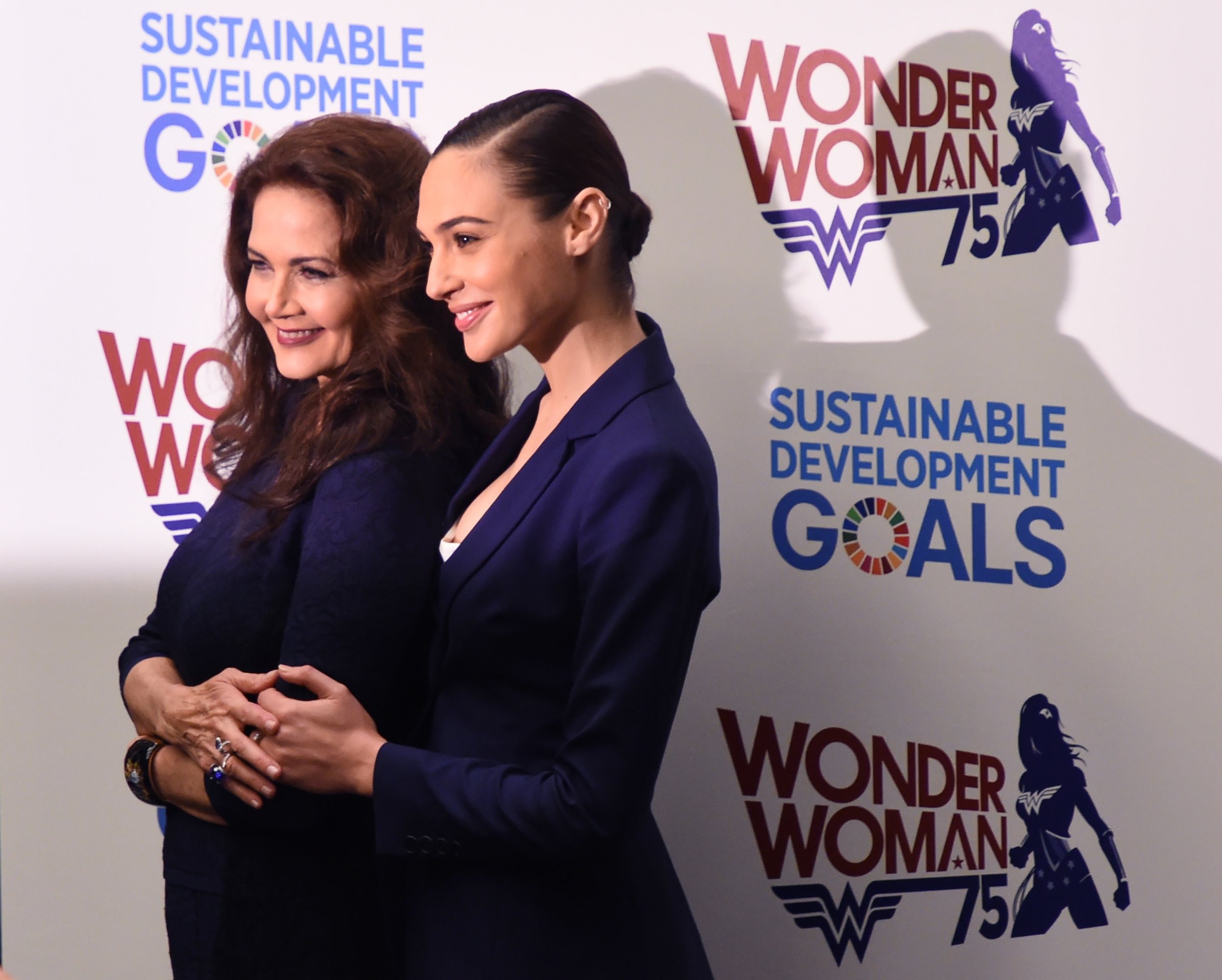
Wonder Woman has a new title: ambassador.
The United Nations named the superhero an Honorary Ambassador for the Empowerment of Women and Girls on Friday, which also happened to be the character’s 75th birthday. Lynda Carter, who played Wonder Woman in the 1970s television series, and Gal Gadot, who will star in next year’s Wonder Woman film, were in attendance.
Carter spoke to a group of young Girl Scouts sporting Wonder Woman T-shirts and bracelets. The actress pointed out that when Wonder Woman premiered in 1975, executives didn’t think that a female-led TV show would attract an audience. But the series became popular and, Carter says, female fans wrote in with their own stories of how the character inspired them. “That was when Wonder Woman became flesh, this idea became a reality, she became we,” she said.
“She is real. She lives and she breathes. I know this because she lives in me. She lives in the stories that women tell me day in and day out,” she continued. “Wonder Woman helps being out the inner strength every woman has.” Carter will play the U.S. president on the TV show Supergirl beginning next week.
Wonder Woman’s new position has not come without controversy: Over 600 United Nations staff members signed an online petition asking Secretary General Ban Ki-moon to reconsider the appointment. The petition objects the idea of “a large-breasted white woman of impossible proportions, scantily clad in a shimmery, thigh-baring body suit with an American flag motif and knee-high boots” as an ambassador for gender equity at the UN. (Honorary ambassadors, unlike goodwill ambassadors, are fictional characters. The United Nations has counted Winnie the Pooh and Tinker Bell among its honorary ambassadors before.)
Carter acknowledged the controversy in her speech, saying, ““Please embrace her. To all those who don’t think it’s a good idea, stand up and be counted.”
The Wonder Woman appointment comes on the heels of another man, Antonio Guterres, the former prime minister of Portugal, being chosen as the next secretary-general. Seven of the 13 candidates up to replace Ban Ki-moon were women, but none got the job.
In her 75-year history, Wonder Woman has often been a lightning rod for controversy. Her outfit and figure has been called both too sexy and not sexy enough. Her ideals both too feminist and not feminist enough. Her ideals of love and peace both inspiring and weak. She’s been pushed out of her superhero role to play fashion model and babysitter. Yet, she’s emerged from controversy to triumphantly cover the first issue of Ms. Magazine as feminist icon and praised by Gloria Steinem. In short, she’s suffered the same scrutiny as every other powerful woman in history.
On Friday, UN Under-Secretary-General for Communications and Public Information Cristina Gallach, praised Wonder Woman outright. “While the world has achieved progress towards gender equality, in many parts of the world, women and girls continue to suffer discrimination and violence. Gender equality is not only a fundamental human right, but also a foundation for a peaceful, prosperous and sustainable world,” she said and touted Wonder Woman’s international appeal.
For her part, Gadot emphasized Wonder Woman’s vision of a peaceful world—she’s much less pugnacious and more optimistic than her male counterparts, Batman and Superman, which would seem to line up perfectly with the United Nation’s mission.
More Must-Reads from TIME
- Why Trump’s Message Worked on Latino Men
- What Trump’s Win Could Mean for Housing
- The 100 Must-Read Books of 2024
- Sleep Doctors Share the 1 Tip That’s Changed Their Lives
- Column: Let’s Bring Back Romance
- What It’s Like to Have Long COVID As a Kid
- FX’s Say Nothing Is the Must-Watch Political Thriller of 2024
- Merle Bombardieri Is Helping People Make the Baby Decision
Write to Eliana Dockterman at eliana.dockterman@time.com